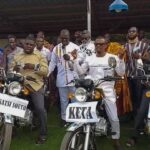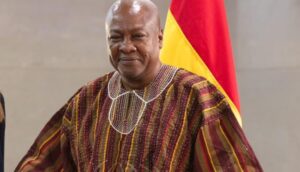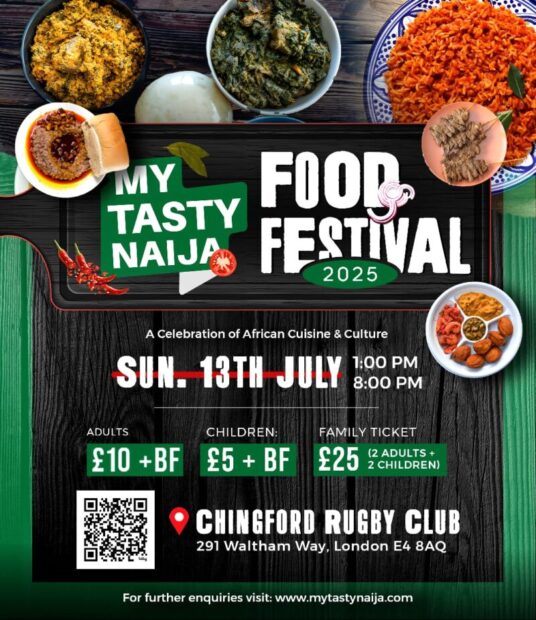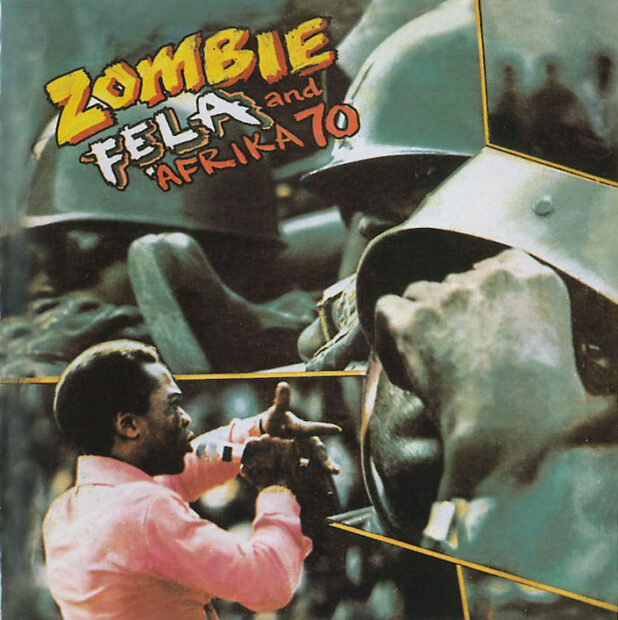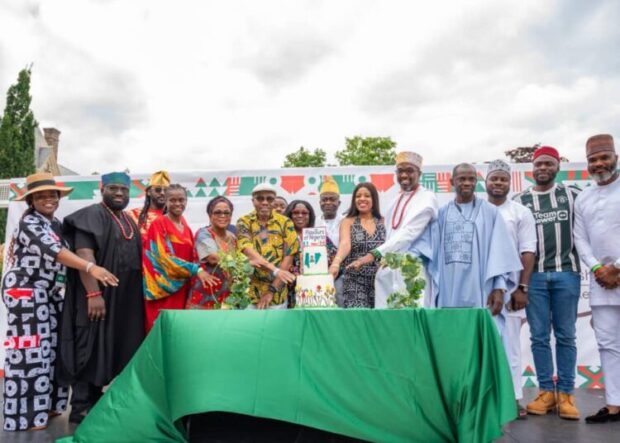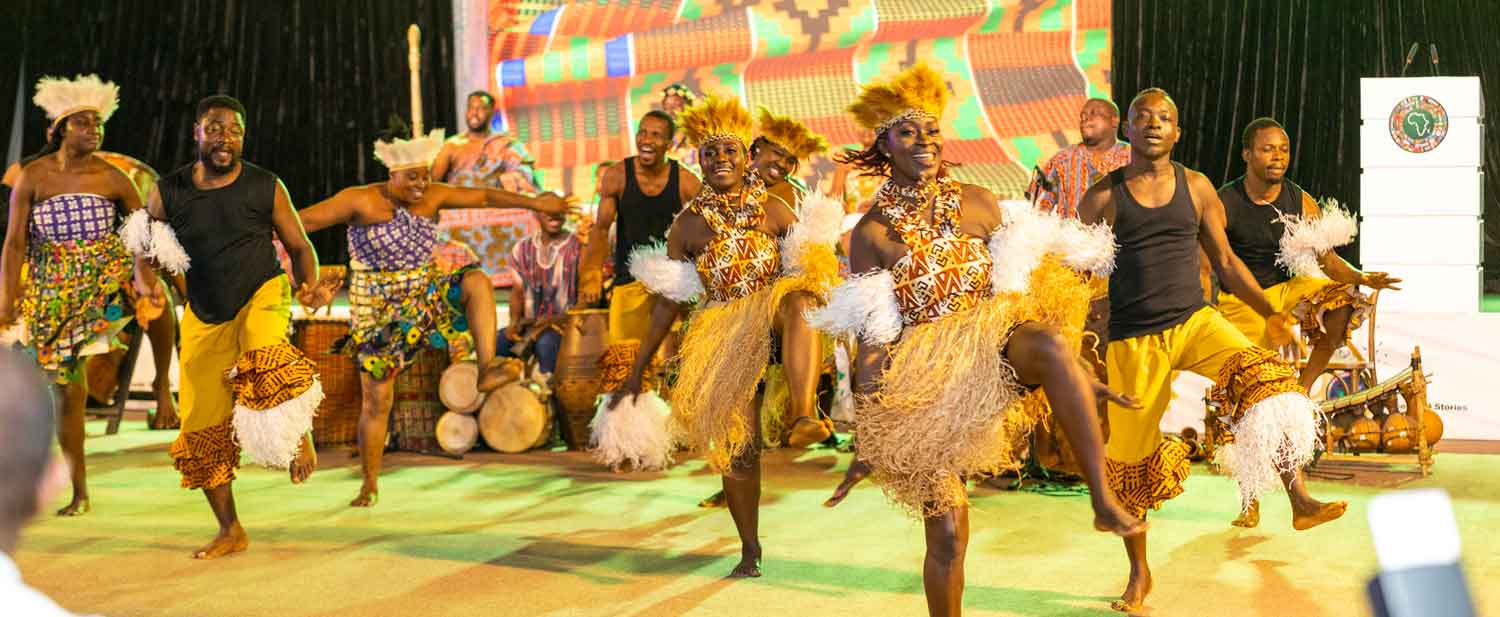
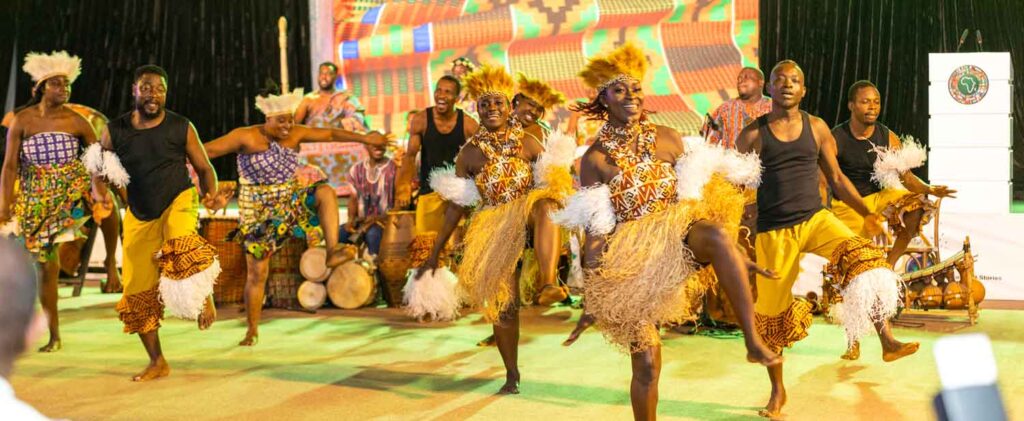
Ghana is a country rich in cultural heritage, with various ethnic groups that have coexisted for centuries. These groups have played crucial roles in shaping the nation’s history, politics, and economy. Understanding Ghana’s ethnic composition provides insight into the country’s unity in diversity and its historical evolution.
Historically, ethnic groups settled in different regions, forming powerful kingdoms such as the Asante Empire, the Dagbon Kingdom, and the Ga states. The trans-Saharan and Atlantic Slave Trades influenced migration patterns, while colonial rule further shaped ethnic boundaries and governance. Despite these historical shifts, post-independence Ghana has maintained national unity while celebrating its cultural diversity.
Major Ethnic Groups in Ghana
Akan (45.68%) – The largest ethnic group, including the Asante, Fante, Akuapem, and Akyem, primarily found in southern and central Ghana. They are known for their rich traditions, festivals, and political influence.
Mole-Dagbani (18.5%) – Found mainly in northern Ghana, this group includes the Dagomba, Mamprusi, and Nanumba. They have a strong chieftaincy system and are predominantly Muslim.
Ewe (12.8%) – Mostly in the Volta Region, the Ewe are recognized for their intricate drumming, dance, and storytelling traditions. They celebrate the famous Hogbetsotso festival.
Ga-Dangme (7.06%) – Located in the Greater Accra Region, they have a strong fishing and trading heritage. The Ga celebrate Homowo, a festival marking survival from famine.
Gurma (6.4%) – Predominantly in the Upper East and parts of the Northern and Oti Regions, they are known for farming and warrior traditions.
Guan (3.22%) – One of Ghana’s oldest groups, scattered across various regions.
Mande (1.97%) – Traders and Islamic scholars, primarily in northern Ghana.
Grusi (2.71%) – Found in the Upper East and Upper West Regions, they have distinct cultural identities within the larger Gur family.
Minority Groups (1.63%) – Includes the Nzema, Sefwi, and Fulani, each contributing uniquely to Ghana’s cultural landscape.
Cultural and Socioeconomic Influence
Ghana boasts over 80 indigenous languages, with 12 officially recognized for literacy. Ethnic groups influence political alignments, economic activities, and migration patterns. The Akan dominate cocoa farming, the Ga are known for trade and fishing, while the Mole-Dagbani play a major role in agriculture.
Despite occasional ethnic tensions, national policies, inter-ethnic marriages, and shared cultural experiences promote unity. Ghana’s diversity remains a strength, contributing to its vibrant national identity.
About the author
62-Year-Old Businesswoman Remanded Over $13K Fraud
Nana Ama Nwurueze, a 62-year-old self-styled businesswoman, has been remanded by the Adabraka District Court in Accra for allegedly defrauding another businesswoman, Dorothy Asare, of $13,000. Nwurueze reportedly posed as a wealthy businesswoman with substantial properties, including Ohemaa Plaza in East Legon, fishing vessels in Takoradi, and a house at Airport, to deceive the complainant.The prosecution, led by Chief Inspector Apewa Achana, has charged Nwurueze with defrauding by false pretenses. She was arrested after a bench warrant was issued against her in December last year. Despite pleading not guilty, her bail application was denied, as the court determined she was a flight risk. The case was initially reported to the Airport Police Station in 2021, but attempts to arrest her were unsuccessful until her eventual arrest in March 2024. Following her arrest, she was granted police inquiry bail but went […]
Edem 4Style March 26, 2025
President Mahama Nominates 71 New DCEs Pending Approval
President John Mahama has nominated 71 new District Chief Executives (DCEs) across various districts in Ghana, pending approval by local Assembly members. This move is aimed at strengthening local governance as these executives are expected to play a crucial role in the management of their respective districts.An official statement detailing the nominations was signed by Dr. Callistus Mahama, the Secretary to the President, and addressed to the Minister of Local Government, Chieftaincy, and Religious Affairs.While most districts have their nominees, the nomination for the Kpando district is still pending. The new DCEs will need to be confirmed by the Assembly members in their respective districts before they officially take up their roles.
Edem 4Style March 26, 2025
FIC Freezes Accounts of Bills Micro-Credit Founder, Richard Nii Armah Quaye
The Financial Intelligence Centre (FIC) has frozen all accounts associated with Richard Nii Armah Quaye, the founder of Bills Micro-Credit. This includes accounts linked to Bills Micro-Credit, Quick Credit and Investment Micro-Credit, as well as an account of Romeo-Richlove Kweku Seshie, the Chief Executive Officer of Bills Micro-Credit.The action follows a letter from the FIC, in line with Section 56(1) of the Anti-Money Laundering Act, 2020 (Act 1044), and applies to all accounts connected to the named individuals, pending further instructions. The FIC’s role involves analyzing suspicious transactions related to money laundering, terrorist financing, and other financial crimes.The move comes after a statement from the Ghana Revenue Authority revealing that Nii Armah Quaye is undergoing a personal income tax assessment for over GHS 30 million in unpaid taxes. This freeze is part of regular regulatory oversight to ensure compliance with […]
Edem 4Style March 26, 2025
Over 1,350 ECG Containers Missing from Tema Harbour Amid Procurement Breaches – Energy
The Minister for Energy and Green Transition, John Abdulai Jinapor, has raised significant concerns over the disappearance of more than 1,350 containers belonging to the Electricity Company of Ghana (ECG) from the Tema Harbour. A committee tasked with investigating the matter has uncovered serious procurement breaches that have been ongoing for several years.Jinapor shared a 103-page report on the matter, describing the findings as alarming, with a clear indication of irregularities that have affected the country’s energy sector. The Minister emphasized that law enforcement agencies would be involved to ensure that those responsible for the missing containers and procurement violations are held accountable.The disappearance of the containers and the associated procurement irregularities have sparked concerns about transparency and accountability within Ghana's energy sector, urging the government to take swift action.
Edem 4Style March 26, 2025
Ex-FIFA Chief Blatter and Platini Cleared in Corruption Case
Former FIFA President Sepp Blatter and French soccer legend Michel Platini have been cleared of corruption charges by a Swiss court. The pair were accused of authorizing a 2 million Swiss franc payment to Platini in 2011. The court ruled that there was insufficient evidence to prove the payment was fraudulent, acknowledging their consistent account of an oral agreement for the payment.The decision marks the end of a long-running legal battle, which began in 2015 and resulted in their suspension from football by FIFA. Both Blatter and Platini expressed relief following the verdict. Platini declared that his honor had been restored, while Blatter described the case as a burden that had hung over him for years.Swiss federal prosecutors are reviewing the decision and may appeal to the Swiss Federal Court.
Edem 4Style March 26, 2025
Idris Elba Honored as a Son of Ga Land, Announces Film Studio Project in Accra
On March 25, 2025, renowned British actor and filmmaker Idris Elba was honored as a son of Ga Land in a grand ceremony at the Ga Mantse Palace in Accra. The event, under the reign of King Tackie Teiko Tsuru II, celebrated Elba’s contributions to the African diaspora and his dedication to developing Ghana’s creative industry.Elba’s visit included an exciting announcement: he plans to build a world-class film studio and school on 22 acres of land near Osu Castle. This project aims to provide training, employment, and a creative hub for young Ghanaian talent, with a focus on African cinema.King Tackie Teiko Tsuru II expressed strong support for the initiative, emphasizing the need to guide the youth and advance the creative arts. The announcement was met with applause and marked a significant moment for Ghana’s growing role in the global […]
Edem 4Style March 26, 2025
Related
DJ Abass Set to Bring Authentic Nigerian Flavors to London with My Tasty Naija Food Festival
From YouTube Sensation to Real-Life Festival The popular YouTube series My Tasty Naija is stepping off the screen and into real life with its first-ever food festival in London . Set for Sunday, July 13, 2025 , at the Chingford Rugby Club , this event will celebrate Nigerian and African cuisine like never before. What began as a digital journey through Nigerian food culture in January 2024 has grown into a full-blown cultural movement. Created by British-Nigerian media entrepreneur and DJ, Abass Tijani (DJ Abass) , the show quickly became a go-to platform for lovers of Nigerian food across the UK and beyond. A Culinary Journey Across Continents Since its launch, My Tasty Naija has taken viewers on a flavorful adventure — from the best suya spots in Peckham to top jollof rice makers in Wembley . One standout episode […]
Mujahid Yusuf June 15, 2025
Fela Resurrects as His Zombie Enters Grammy Hall of Fame
Fela Anikulapo-Kuti Enters Grammy Hall of Fame Posthumously An artist may die, but their music lives on — and no one embodies that more than Fela Anikulapo-Kuti , the legendary founder of Afrobeat. Twenty-eight years after his passing, Fela’s iconic 1976 album Zombie has been inducted into the 2025 Grammy Hall of Fame , cementing his place among global musical icons. The announcement was made by the Recording Academy , which selects recordings at least 25 years old that have “lasting qualitative or historical significance.” Zombie was praised for its “fearless critique of oppression, cultural impact, and enduring relevance to political resistance and African musical heritage.” Femi Kuti Celebrates Father’s Grammy Induction Reacting to the news, Fela’s eldest son and fellow Afrobeat musician, Femi Kuti , shared the family’s joy on social media: “Our father’s legacy lives on. We are […]
Mujahid Yusuf June 13, 2025
Creatives Seek $326M FG Support to Boost Sector
Over $326M Requested as FG Opens Creative Fund In just 30 days since applications opened, 1,230 businesses and creatives have applied for funding under Nigeria’s new Creative Economy Development Fund (CEDF) , requesting a total of $326 million . The fund, launched by the Federal Ministry of Arts, Culture, Tourism, and Creative Economy (FMACTCE) , aims to support innovation, job creation, and economic diversification across Nigeria’s creative sector. Applicants include both creative and non-creative businesses , showing strong interest in the program. Of those who applied: 71% requested grants 11% chose debt financing 7% opted for equity investment This early surge highlights the high demand for structured financial support among Nigeria’s creative entrepreneurs. Government Launches First Phase of CEDF The Federal Executive Council (FEC) recently approved the first phase of the Creative Economy Development Fund , marking a major step […]
Mujahid Yusuf June 13, 2025
Big Talent, Broken System: The Industry Behind Afrobeats
Afrobeats Shines Globally, But at What Cost? Afrobeats has taken the world by storm. From Davido and Wizkid to Burna Boy and Tiwa Savage, Nigerian artists are topping international charts, winning global awards, and headlining major festivals. Yet behind this global success lies a deeply flawed local music industry —one that often fails the very talent it should be nurturing. While the sound is thriving internationally, many artists still struggle with broken systems at home , including weak legal protections, outdated distribution models, and exploitative contracts. The Rise of Afrobeats vs. The Reality of the Local Industry Nigeria may be the cultural birthplace of Afrobeats, but its music industry lacks the infrastructure, regulation, and investment seen in more mature markets like the U.S. or the U.K. Despite producing some of the biggest names in music today, Nigeria’s creative ecosystem remains […]
Mujahid Yusuf June 13, 2025
“Davido Is Jealous of Burna Boy” – Deeone Claims OBO Behind VDM’s Criticism of Afrobeats Big 3
Deeone Links Davido to VDM’s Attack on Afrobeats Big Three Nigerian comedian and former BBNaija star Martins Otse, popularly known as Deeone , has sparked reactions with a bold claim about VeryDarkMan’s recent viral rant against Afrobeats heavyweights Davido, Wizkid, and Burna Boy . As previously reported by Legit.ng , VeryDarkMan (VDM) went viral after slamming the music stars for flaunting their wealth online. He also accused them of failing to make any real impact on Nigerians despite their global fame. Reacting to VDM’s comments, Deeone dropped a surprising twist—he believes Davido is fueling the criticism out of personal jealousy toward Burna Boy. “Davido Can’t Handle Burna’s Growth” – Deeone Deeone claimed that Davido feels overshadowed by Burna Boy’s rise in both influence and international acclaim. “He’s jealous,” Deeone said.“He doesn’t like that Burna is getting more shine than him.” […]
Mujahid Yusuf June 13, 2025
Flavours of Nigeria Festival Returns With ‘A Cultural Voyage’ in Canada
Nigerian Culture Set for Grand Celebration in Canada The Flavours of Nigeria Festival is back with its second edition , set to take place on August 9, 2025 , at Gage Park in Brampton, Ontario . This year’s event, themed “A Cultural Voyage,” promises a rich celebration of Nigerian cuisine, music, fashion, folklore, and traditions —bringing together thousands of attendees for a full day of immersive cultural experience . Festival Curator Chukwuebuka Anyaduba announced the event during a press briefing in Abuja, describing it as more than just a festival: “This is a journey into the soul of Nigeria—through our food, stories, music, and artistry.” What to Expect at the 2025 Flavours of Nigeria Festival The 2025 edition will feature a diverse lineup of cultural and creative experiences, including: 🍽️ Naija Brunch: Flavours & Royalty Inspired by Benin royalty, this […]
Mujahid Yusuf June 12, 2025


